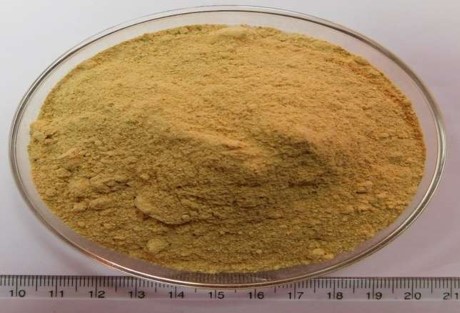A pharmaceutical standardization of Shunthi (Zingiber officinale): A Research Article
DOI:
https://doi.org/10.21760/jaims.8.12.11Keywords:
Shunthi, Standardization, Analytical Study, Microscopic StudyAbstract
Introduction: Shunthi (Zingiber officinale) is a dried form of Adaraka. Adaraka means Aadryati Jihva i.e., which keeps the Jihva moistened by increasing salivation in mouth whereas Shunthi dries up the water content of Kapha and checks its flow. Its rich history of use for centuries, is owing to its composite therapeutic properties. Aims and Objectives: The present study is aimed to standardization of Shunthi. Materials and Methods: Preparation of Shunthi Churna from its Kanda (Rhizome). This article focuses on the pharmaceutical preparation and standardization of Shunthi to ensure consistent quality and potency in herbal formulations. Standardization involves the quantification of key bioactive compounds such as alkaloids, carbohydrates, steroids, tannins and starch, which contribute to its therapeutic effects. For the identification, purity and strength these must be fulfilled - analytical parameters like loss on drying at 110°C, total ash value, acid insoluble ash, alcohol soluble extractive, water soluble extractive and moisture content in drug. Conclusion: Shunthi Churna is used for Grahani, Pandu, Shwasa Roga, Arsha, Amvata, Rajyakshma, Shula, Anaha etc. The rare side effects are increased bleeding tendency, rash, itching sensation and swelling of tongue, lips and throat. Drug interaction: Shunthi can interact with anti-inflammatory medications like Ibuprofen, Aspirin etc. and other drugs that affect bleeding tendency.[1] Contraindication: In Summer and autumn seasons, contraindications with Pittaja Vyadhi.[2] Hence the present work may be used for the quality assessment and standardization of Shunthi (Zingiber officinale).
Downloads
References
Gupta SK, Thakur AB, Dudhamal TS, Nema A. Management of Amavata (rheumatoid arthritis) with diet and Virechanakarma. Ayu. 2015 Oct-Dec;36(4):413-415.
Sharma M, Sahu S, Adaraka. Gallery of medicinal plants (Dravyaguna vigyan). Thieme; 2020. p. 45-52.
Sharma PV. Shunthi. Dravyaguna vigyan. 2nd ed. Varanasi: Chaukhambha Bharti Academy; 2012. p. 331-335.
Sharma PC, Yelne MB, Dennis TJ. Shunthi. Database on medicinal plants used in Ayurveda. Volume 5. CCRAS; 2002. p. 315-322.
Sharma PC, Yelne MB, Dennis TJ. Guduchi Tinospora cordifolia (wild.) Miers ex HK. F & Th. Database on medicinal plants used in Ayurveda. Volume 5. CCRAS; 2002. p. 315-322.
Central Ayurveda Research Institute for Drug Development, Kolkata, CCRAS, Ministry of AYUSH, Government of India.















